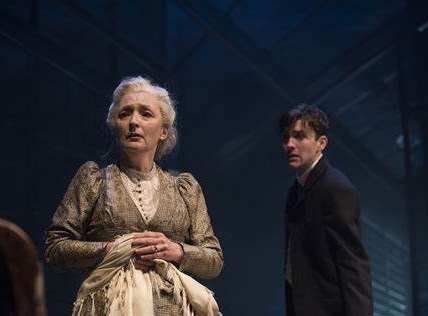Screaming Lord Sutch, born David Edward Sutch on November 10, 1940, in London, England, was a musician, eccentric performer, and political figure whose life left a lasting impact on British culture. Best known as the founder of the band The Savages and his infamous persona as a rock ‘n’ roll wildman, Sutch was not just a performer but also a perennial outsider in the world of politics, having run for public office multiple times.
His unique combination of music, shock value, and political defiance has left him as one of the most unconventional and iconic figures in British entertainment history. This article delves into his life, his musical career, his political ventures, and the lasting legacy of his work.
Early Life and Musical Beginnings
David Sutch was born to a working-class family in London. He grew up in an environment that exposed him to a wide variety of musical influences, from traditional British music to American rock ‘n’ roll. His initial exposure to music was through his teenage years, where he became deeply interested in the burgeoning rock ‘n’ roll scene that was sweeping the UK in the 1950s. His idolization of rock ‘n’ roll icons like Elvis Presley and Little Richard shaped his musical tastes and his career trajectory.
Sutch’s early foray into the music scene was influenced by his unique stage persona. He adopted the name “Screaming Lord Sutch” as he wanted to present himself as a larger-than-life figure. His band, The Savages, was formed in the early 1960s, and they quickly became known for their outrageous live performances, complete with heavy theatrics, makeup, and a flair for the dramatic.
The Rise of The Savages
The Savages were one of the first bands to combine rock music with a showmanship that was more akin to what one would later see in glam rock. Screaming Lord Sutch’s performances were known for being wild and chaotic, with theatrical elements that pushed the boundaries of what rock ‘n’ roll shows were expected to be.
Their most famous song, “Jack the Ripper,” released in 1963, is often considered a pioneering moment in rock music. The track featured Dutch’s deep voice, haunting delivery, and dark lyrics that captured the public’s fascination with the infamous Victorian-era killer. “Jack the Ripper” became a hit, making Sutch one of the most well-known figures in the UK music scene at the time.
Sutch’s sound evolved over the years, but his theatrical flair remained constant. His performances were often characterized by his dramatic stage presence, wearing dark makeup, and adopting the persona of a horror-themed showman. It wasn’t just about music for Sutch – it was about creating an experience, one that blurred the lines between music, theater, and film.
Political Career: The Monster Raving Loony Party
Beyond his musical career, Screaming Lord Sutch became a political figure in the UK. However, his approach to politics was far from conventional. In 1983, he founded the Official Monster Raving Loony Party, a satirical political party aimed at mocking the mainstream political system and highlighting the absurdity of the political landscape.
Sutch’s political platform was deliberately absurd and filled with outlandish promises, like free chocolate for everyone, the abolition of gravity, and the creation of a national database of comedians. The party’s motto was “Make Love Not War,” and it became famous for its non-serious approach to campaigning, which often poked fun at traditional politicians.
Despite the party’s comedic nature, Sutch’s involvement in politics was a reflection of his belief that the British political system was out of touch with the common person. He ran for political office several times, including a high-profile run for the seat of London in the 1990s. His candidacy for these positions was symbolic, often focused on creating awareness about the issues he felt were being ignored by mainstream parties.
His political career, though unsuccessful in terms of winning public office, achieved a degree of success in terms of visibility. The Official Monster Raving Loony Party gained a cult following, and Sutch himself became a symbol of outsider politics.
Key Political Campaigns and Public Reactions
Screaming Lord Sutch’s campaigns were filled with eccentric stunts, catchy slogans, and outlandish promises. His political campaigns were covered widely in the media, and although he never won a seat, he garnered significant media attention. Some of his more notable campaign moments included:
The “Royal Family Party” Campaign: In 1984, Sutch ran for the role of Mayor of London under a platform where he promised to disband the monarchy and replace it with a “people’s monarchy.”
The “Sutch Day” Campaign: A cheeky declaration that he would create a national holiday to honor his own birthday, which would involve widespread national festivities and public holidays.
The “Free Chocolate” Campaign: Promised by Sutch in his satirical platform to relieve the public from the monotony of their lives by handing out chocolate bars.
While Sutch did not win any elections, he made a name for himself as a quirky, alternative voice to the staid nature of British politics. In a way, his candidacy helped give voice to people frustrated with the political establishment, and his campaigns became something of a social commentary on the state of British democracy.
Personal Struggles and Legacy
Though Screaming Lord Sutch was largely successful in terms of carving out a niche in both music and politics, his personal life was riddled with challenges. His career was marred by financial struggles and personal tragedies, including the deaths of several key band members and the growing difficulty of maintaining his political movement.
Sutch was reportedly prone to bouts of depression, which often affected both his career and personal relationships. The pressures of maintaining such an outrageous public persona took their toll on him, and despite his fame, he struggled with feelings of loneliness and isolation.
In 1999, at the age of 58, Screaming Lord Sutch tragically took his own life. His death shocked the British public, and many mourned the loss of a man who had dedicated his life to both his art and his eccentric political campaigns. His funeral was attended by both musicians and political figures, showing the profound impact he had on multiple facets of British culture.
Impact on British Rock and Pop Culture
Screaming Lord Sutch may not have been as commercially successful as some of his contemporaries, but his influence on British rock music cannot be understated. His approach to live performance helped lay the groundwork for the theatrical elements that would later become synonymous with glam rock and punk music. Bands like David Bowie’s Ziggy Stardust and Alice Cooper’s shock rock shows drew heavily on Sutch’s performances, and his combination of music and theatre inspired a generation of performers who sought to break boundaries and challenge the status quo.
Moreover, Sutch’s contributions to British popular culture extended beyond music. His persona and his party provided an outlet for those who felt disconnected from traditional political structures. By combining music, satire, and politics, he managed to create a space where both ideas could coexist and flourish in unconventional ways.
FAQs
Who was Screaming Lord Sutch?
Screaming Lord Sutch (born David Edward Sutch on November 10, 1940) was a British rock musician and a political figure. He became famous for his theatrical performances and wild persona as the frontman of the rock band Screaming Lord Sutch and the Savages, which was one of the pioneering acts in the British rock and roll scene in the early 1960s. His eccentricity, energetic performances, and flamboyant style made him a key figure in the UK’s early rock scene.
Why is he called “Screaming Lord Sutch”?
The name “Screaming Lord Sutch” was a stage persona adopted by David Sutch. The title “Lord” was self-styled, as he claimed to be the Earl of Harrow. His nickname “Screaming” referred to his loud and dramatic vocal style, which was a key feature of his rock performances.
What type of music did Screaming Lord Sutch perform?
Screaming Lord Sutch was known for performing rock and roll, shock rock, and proto-punk music. His style was characterized by loud, energetic performances, often combined with humor and theatrics. Some of his most famous songs include “Jack the Ripper”, “The Earl of Rothermere”, and “Monster in Black Tights”.
In Summary
Screaming Lord Sutch’s life, though marked by both creative brilliance and personal tragedy, remains an essential part of British cultural history. His contributions to rock music, his satirical take on politics, and his ability to push boundaries have made him a lasting symbol of rebellion and creativity.
Today, as we look back on his life and legacy, Screaming Lord Sutch is remembered not only as a rock star and political figure but also as a true pioneer who dared to be different in an era that demanded conformity. His spirit of creativity, irreverence, and defiance continues to inspire those who seek to challenge the norms and make their voices heard, no matter how loud or eccentric.
To read more, Click Here .




